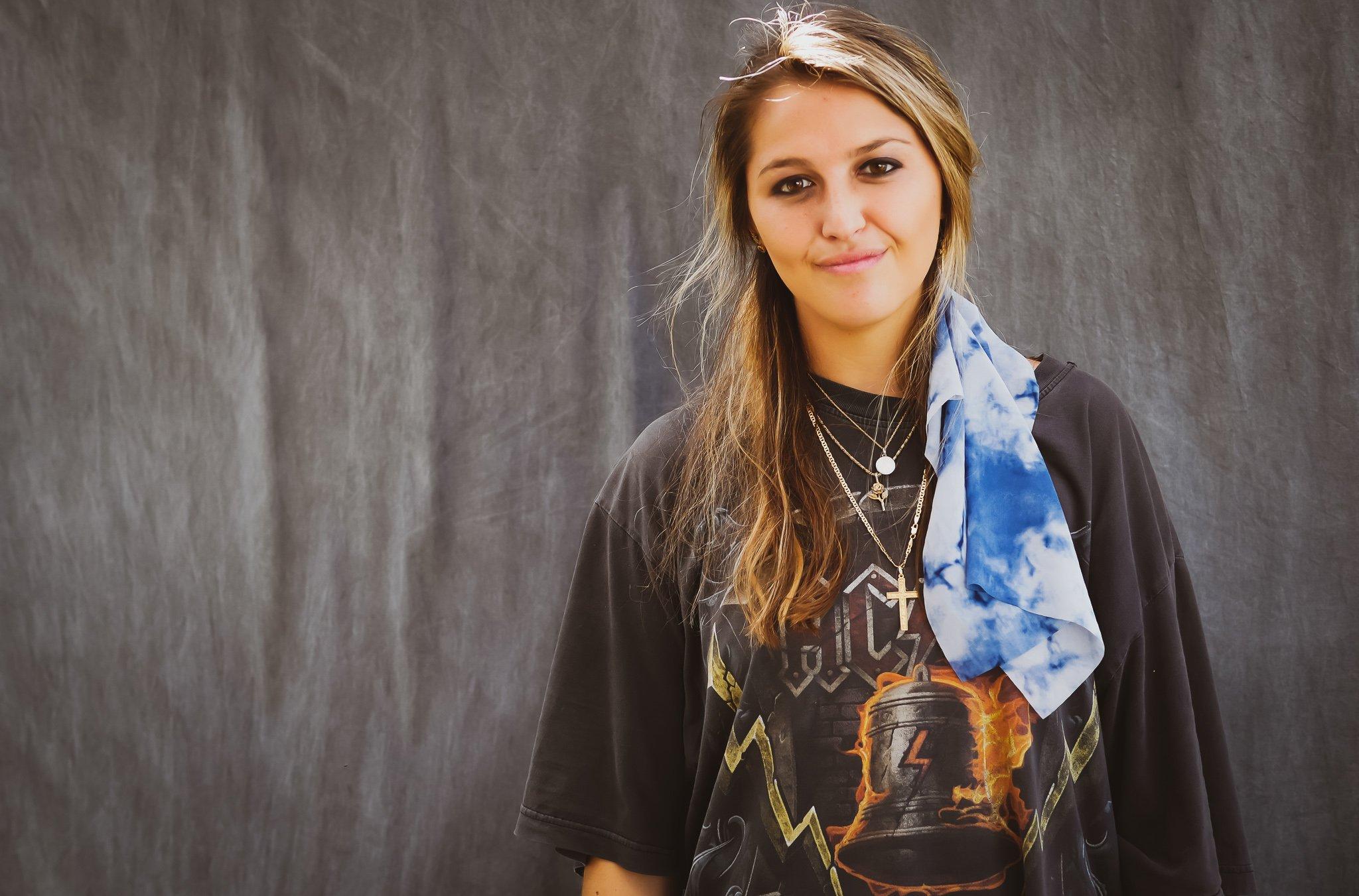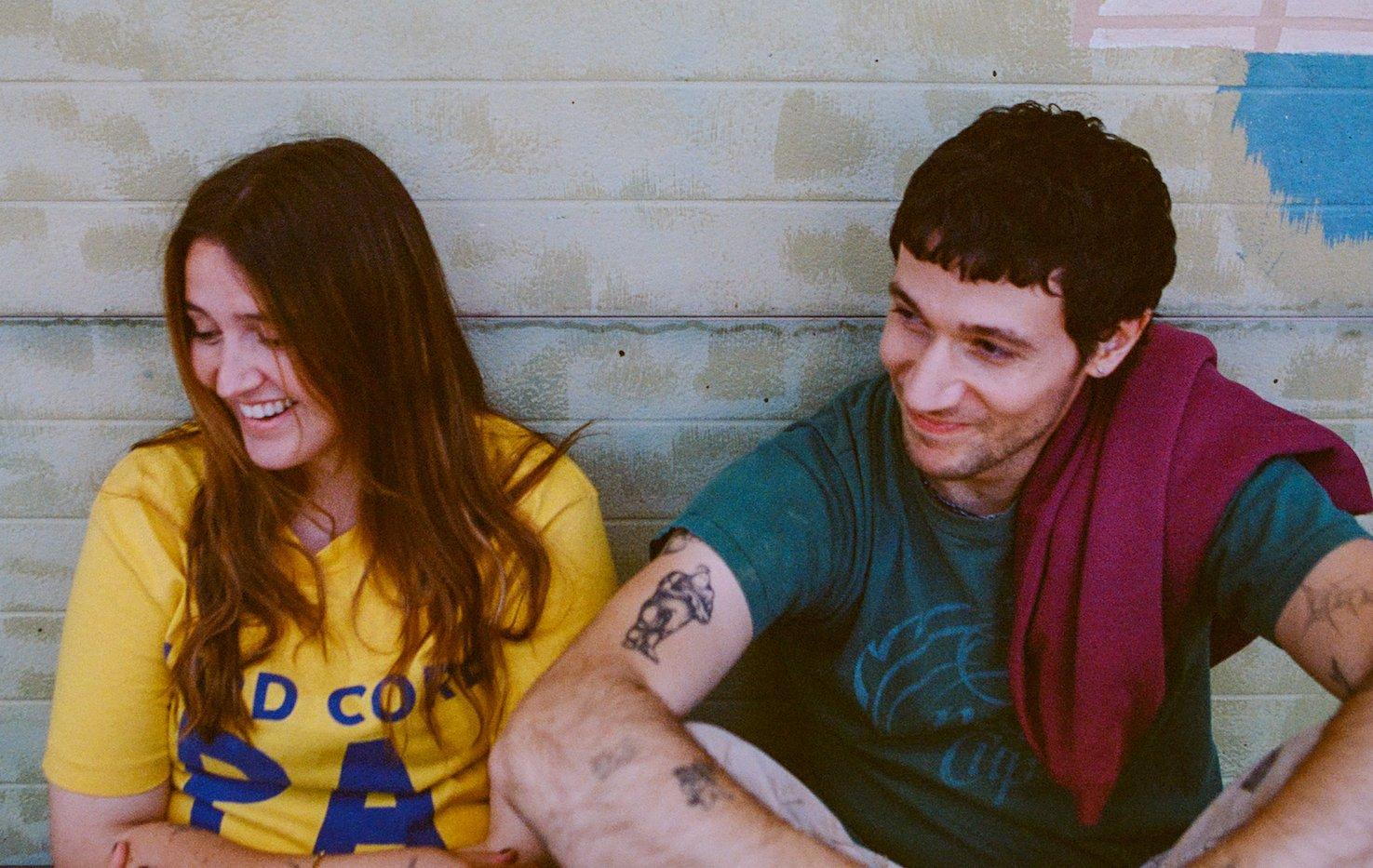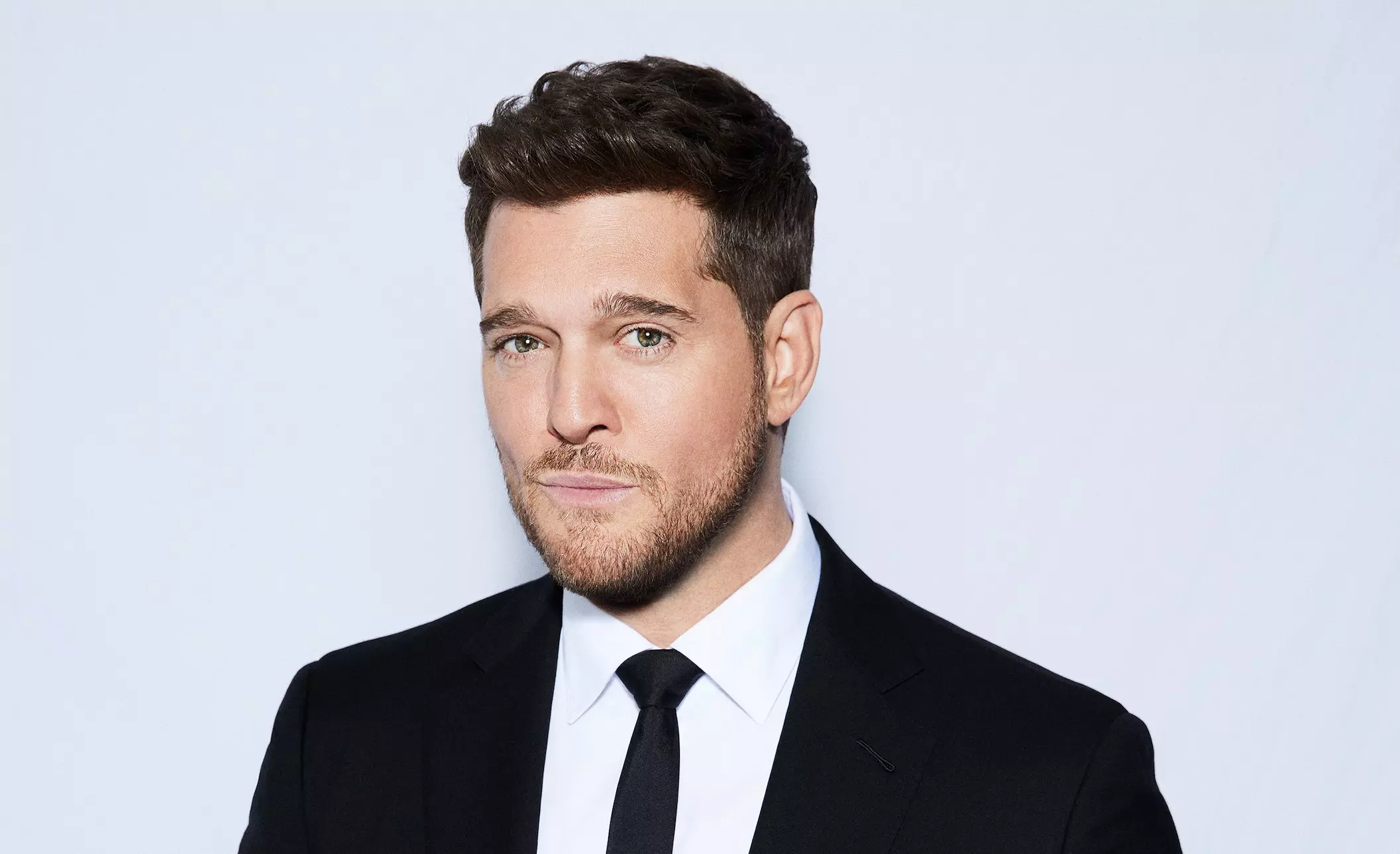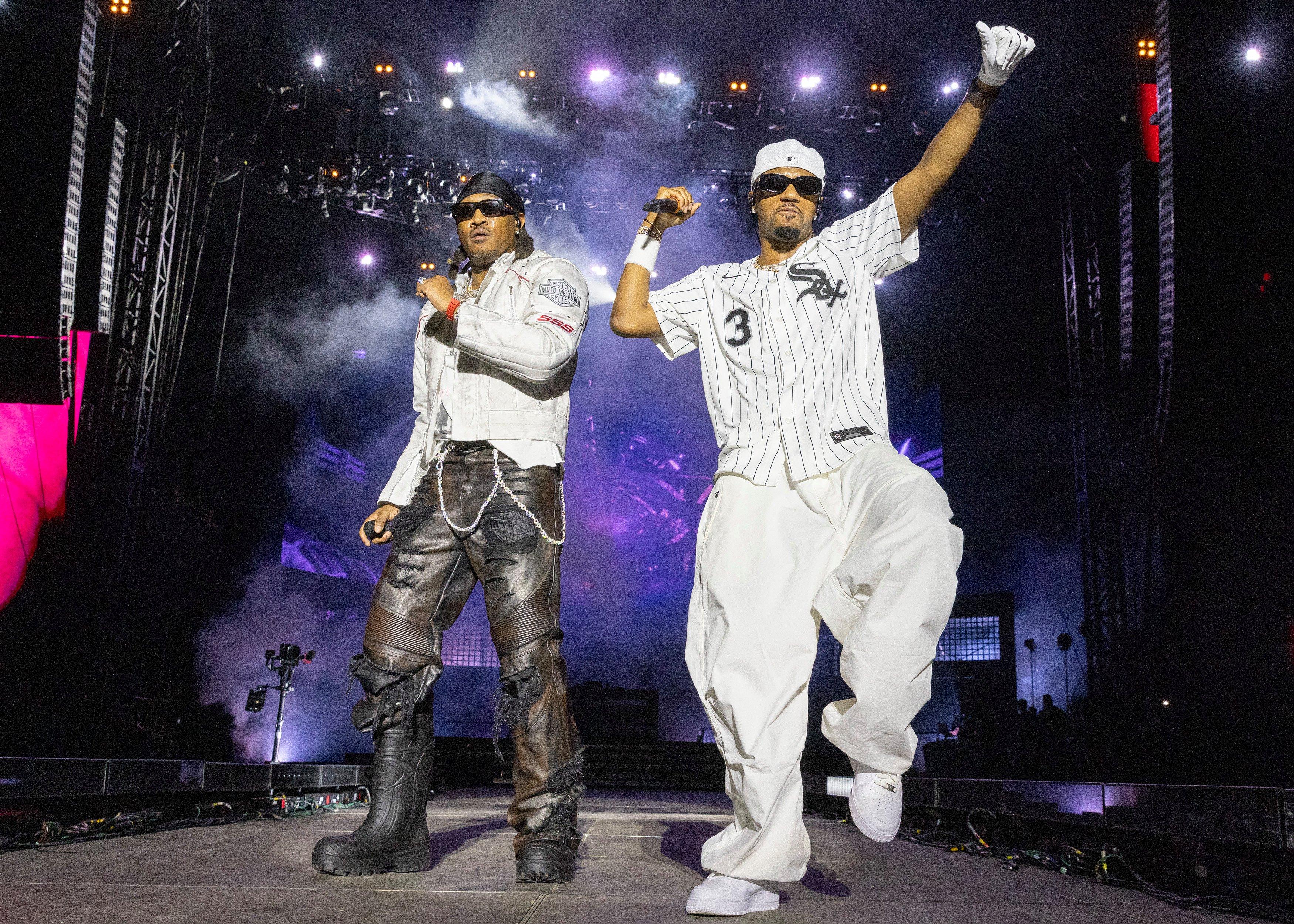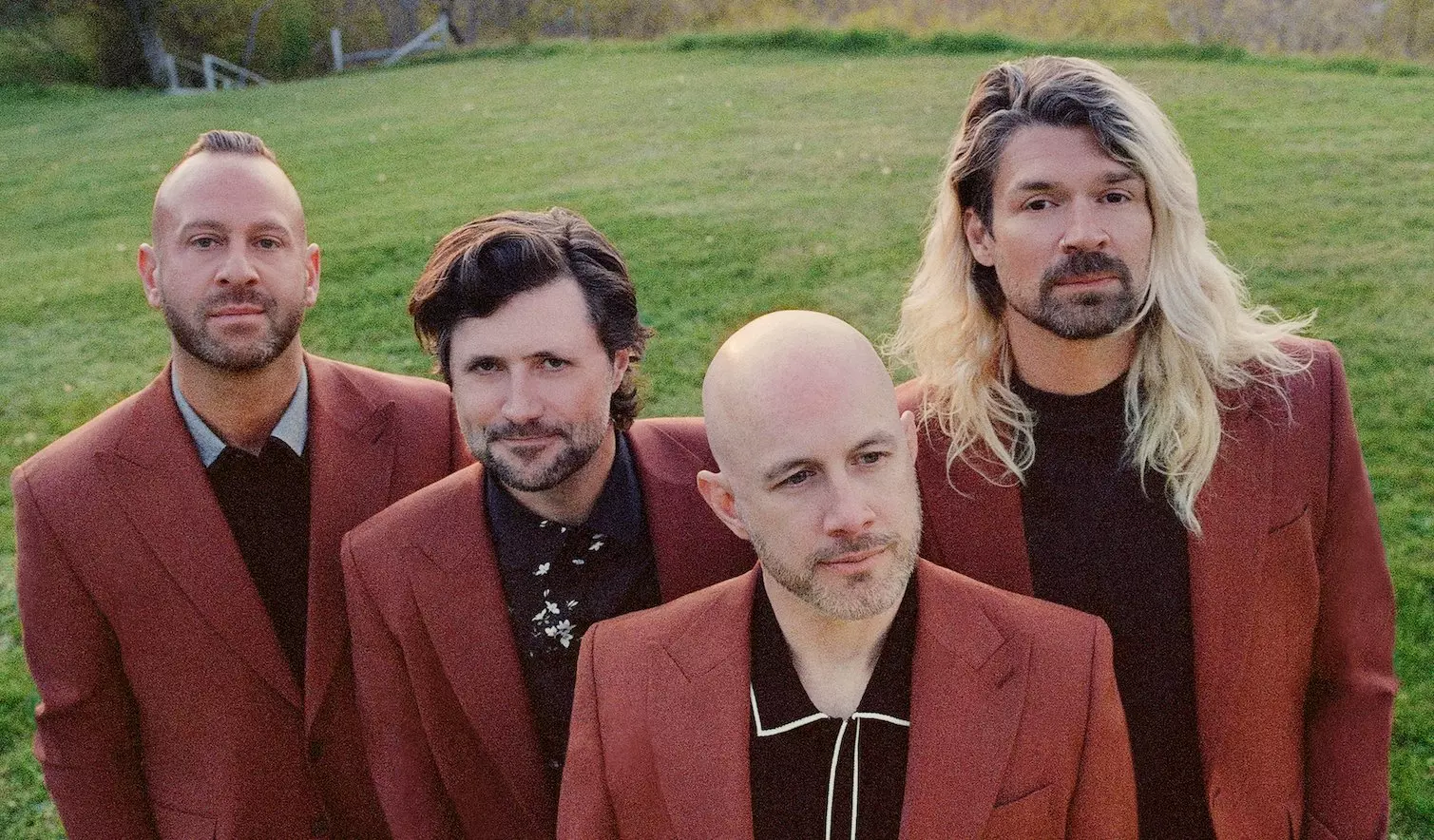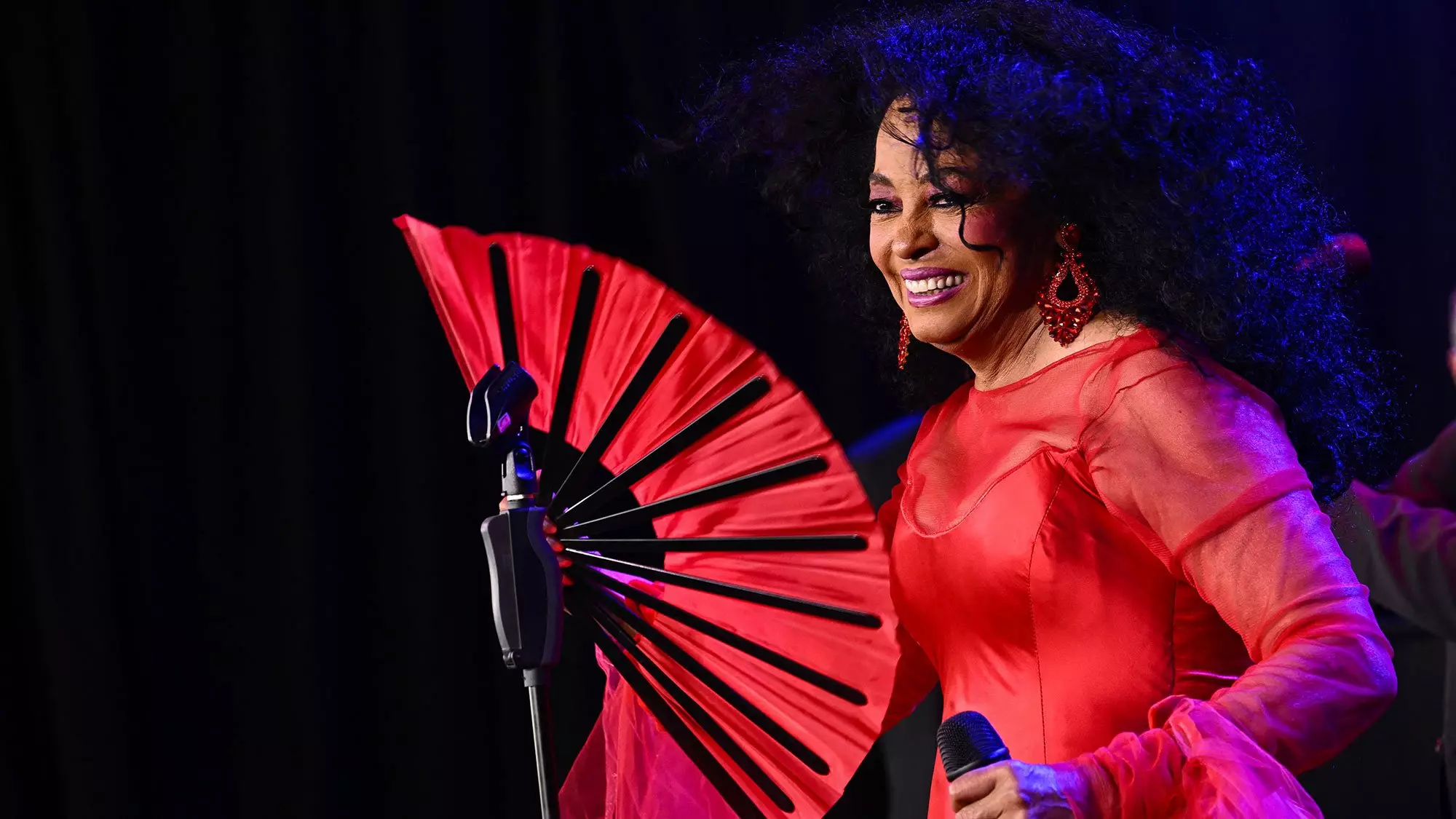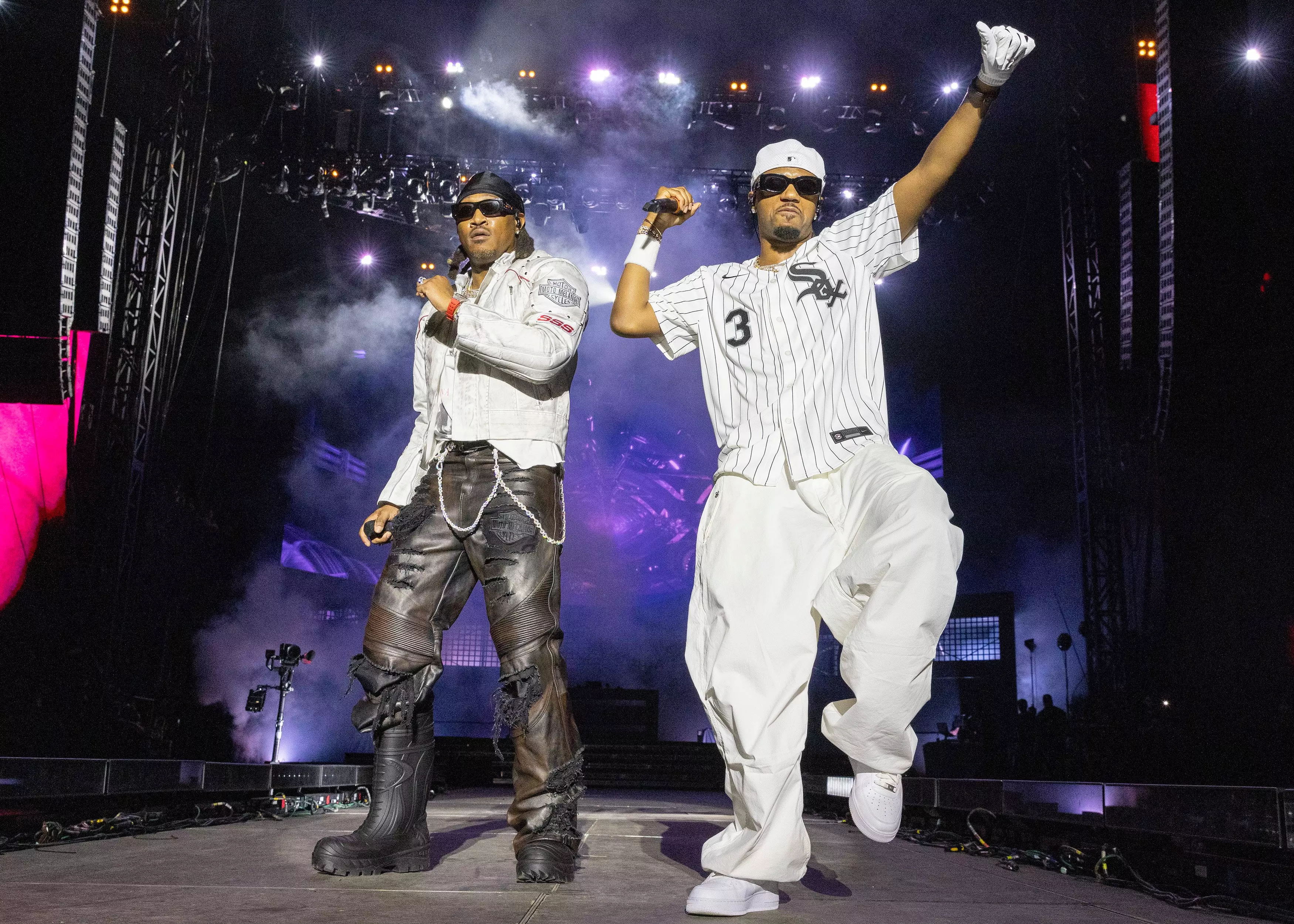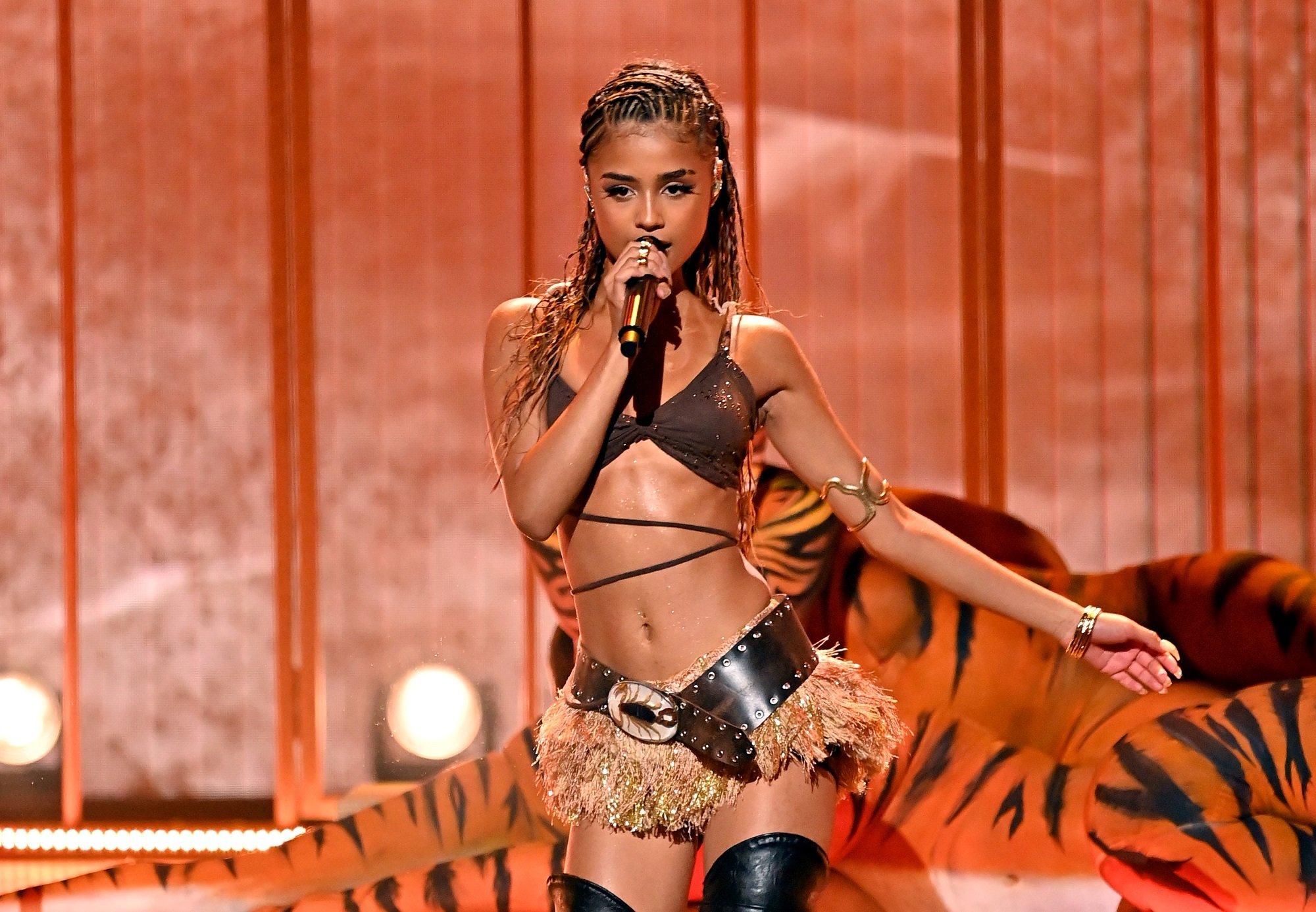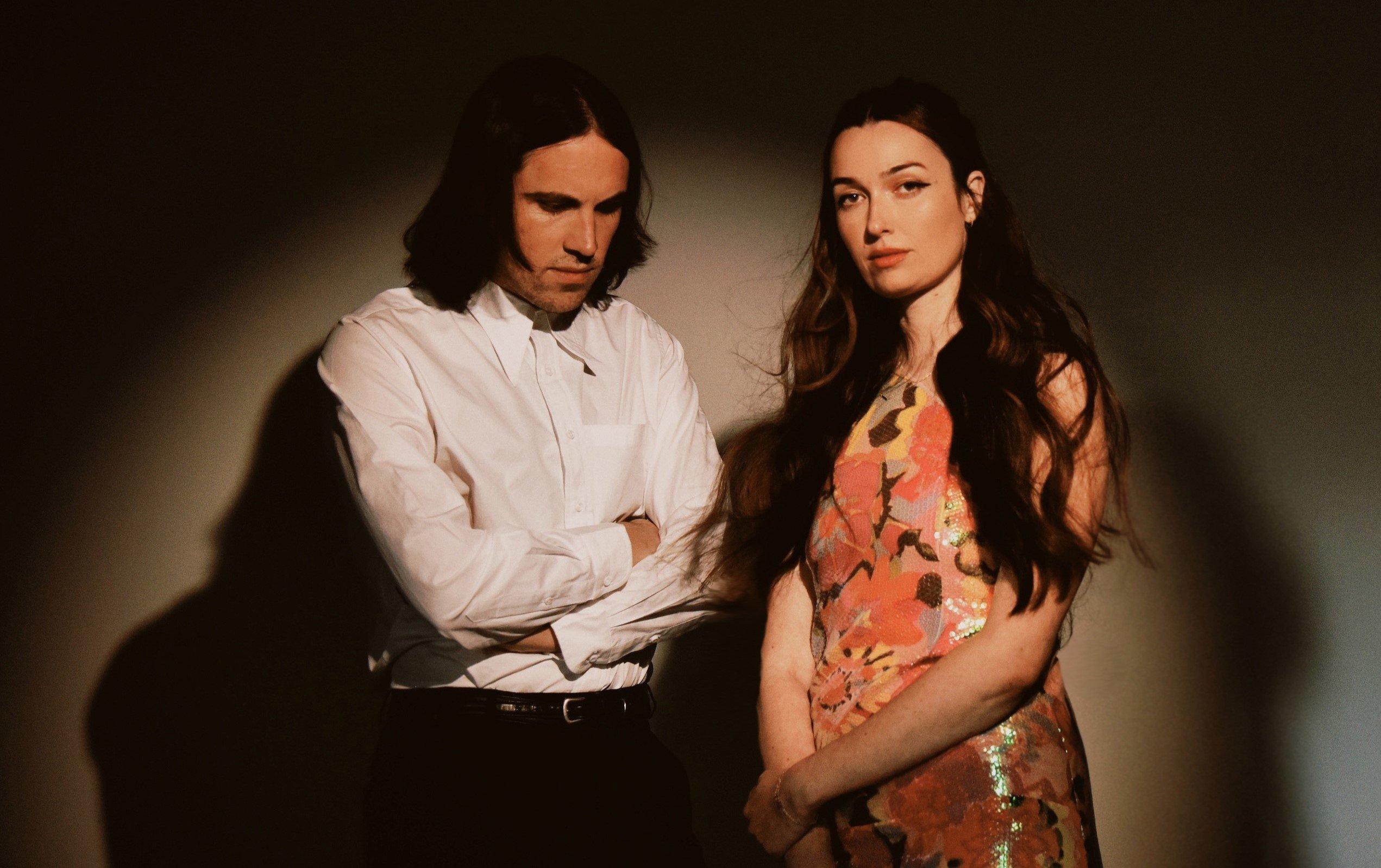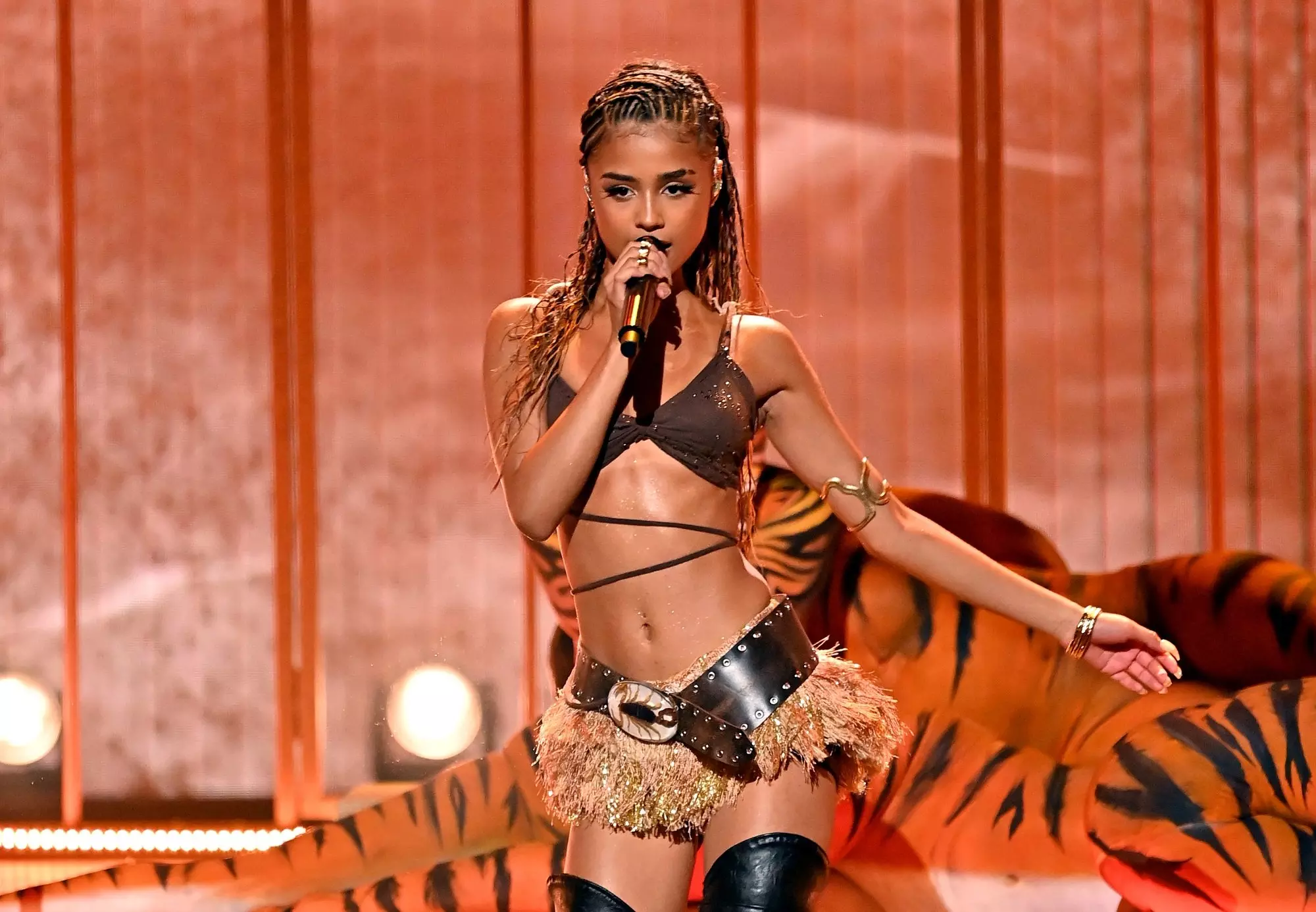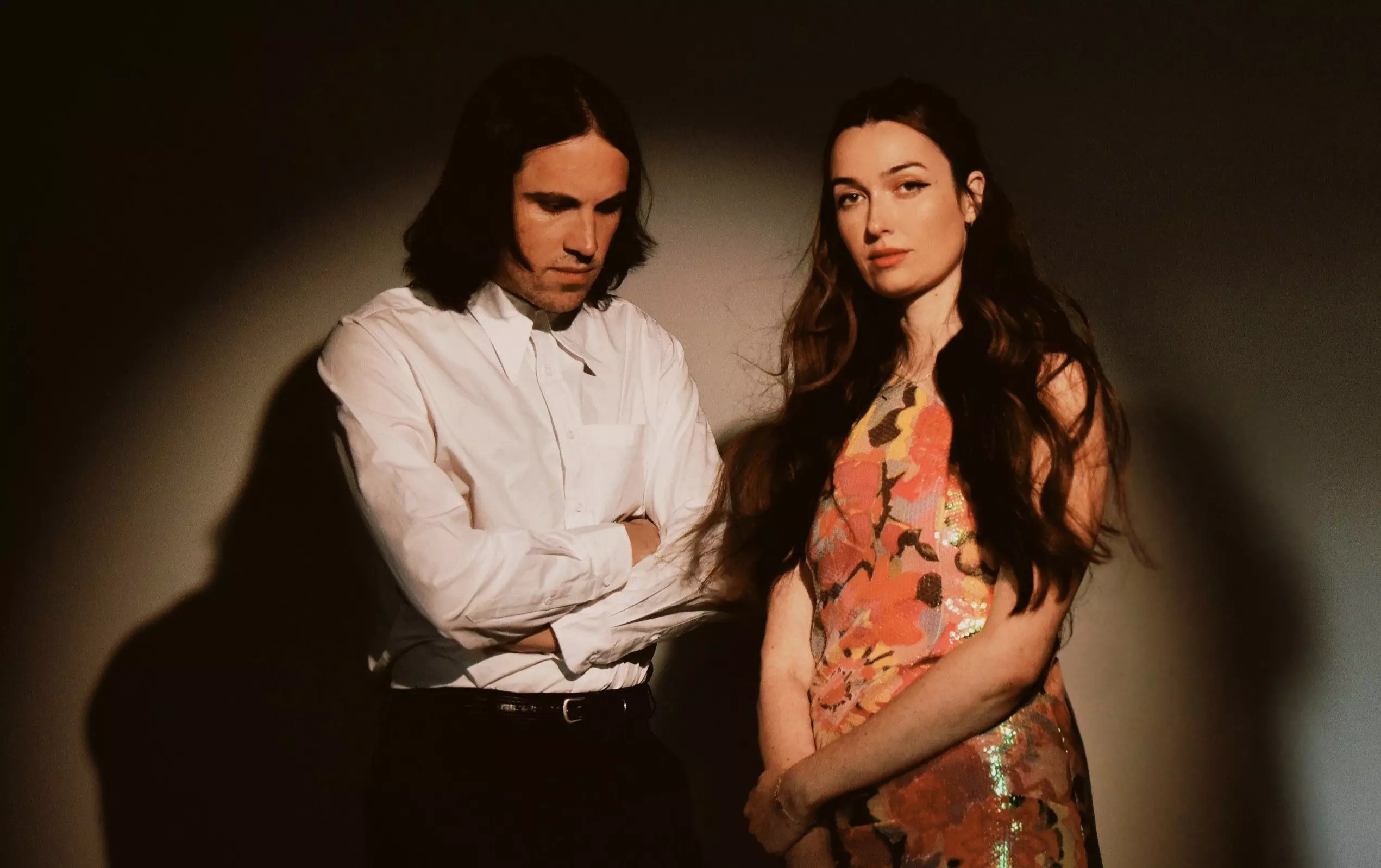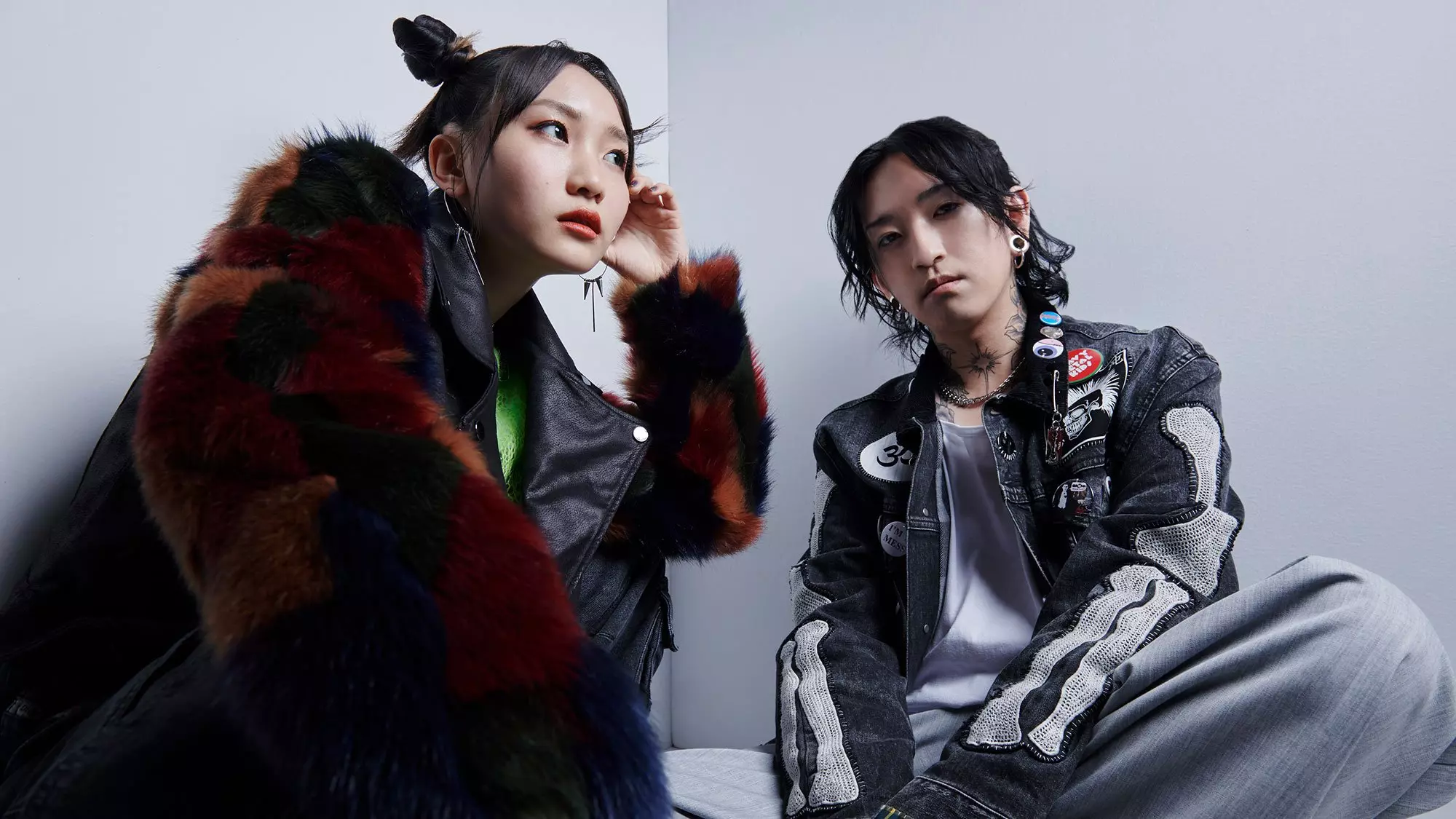Over the past 15 years, Cults have captivated audiences with their atmospheric, layered compositions that pack a pop-friendly punch. Now, on the brink of releasing their fifth album, To The Ghosts, on July 26, Madeline Follin and Brian Oblivion reflect on their journey and new creative freedom.
While their previous albums required the duo to stick to deadlines precariously organized between tours, the pandemic provided new circumstances. Freed of distractions and obligations, Follin and Oblivion traveled to Los Angeles in 2022 to join up with their longtime producer Shane Stoneback (Vampire Weekend, Sleigh Bells) to craft an album that looks back on their past while pushing their sound ahead.
"We don't have the sales pitch for the album down yet, but there's no other band that sounds like us," says Oblivion. "We're digging into our thing, and if you're into anything we've done before, you'll love this one."
Adds Follin, "We're like no other."
The album title is addressed to the ghosts of both Oblivion and Follin's past selves. As Oblivion explains, their four prior albums were time capsules that reflected the period in which each album was written and recorded. This release is something different.
To The Ghosts is a personal landmark for Follin, particularly. In 2020, upon the release of Cults' fourth album Host, she admitted that she'd been too shy to bring her own songwriting and demos to the table for the band's first three albums. It was Stoneback's encouragement that altered the creative process for the duo, resulting in their most collaborative album to date, and significantly more reliance upon live instrumentals in the studio.
"We spent a month in an AirBnB then a week in the studio with Shane," explains Follin.
"It was a mad dash to replace all the midi instruments with real ones, so we were running around playing vibraphones, organs, and guitars and all these things we'd recorded in demos and laying it all back down in one week."
It may have been a mad rush at the end, but over the years the duo have refined their formula for making albums. They're no longer the giddy art students and lovers making DIY music with no plans for world domination.
In 2010, Follin and Oblivion founded Cults and released their debut EP "Cults 7", followed by their debut self-titled album in 2011, which was similarly lauded. By the time their sophomore album "Static" arrived in 2013, the pair had freshly broken up and the themes of being creatively and emotionally stagnated resonated in dramatic, spacious orchestral compositions. They followed up with "Offering" in 2017, which was the first of the duo's albums to lean into optimism and a sense of embracing a more pop-friendly path.
To The Ghosts captures everything fans adore about Cults and they'll have ample opportunity to catch them performing live this year. The duo are set to return to Lollapalooza opening for Vampire Weekend on Aug. 4, followed by their own headlining U.S. tour the same month.
Ahead of their intensive touring schedule, the duo joined GRAMMY.com on a group video chat from their respective homes in New York’s East Village one evening, to discuss their upcoming release.
This interview has been edited for brevity and clarity.
You began working on this album during the pandemic. Tell me where you wrote and recorded material, and whether you did that together or separately?
Madeline Follin: We were writing and recording in Brian's spare room. Can you see him?
Brian Oblivion: This tiny room! [directs the camera around a room not much bigger than 7 x 10 feet].
Follin: I sat on that couch right there, and we spent a lot of time in that little room [laughs]. For the most part we were together for the entire thing.
**Madeline, you revealed that before making your fourth album Host, you were too shy to show your own music to Brian and producer Shane Stoneback. What broke that barrier down for you to fully participate in the creative process?**
It was really hard to get it out of me. I had really strong imposter syndrome. Even though Brian was just starting out, he had taken a few recording classes in college, so he knew a lot more of the recording lingo and ways of communicating technically. I didn't know, so I felt so nervous to even communicate what I wanted. Shane helped with that a lot in terms of translating what I wanted into the language of studio speak. Shane is unlike any other producer we've worked with. He heard me out.
Tell me about working with Shane Stoneback in terms of what you came into the conversation with, and what he contributed to shaping this album.
Follin: We thought that we were not going to work with Shane again because he'd largely gotten out of the business. During [the] pandemic he switched careers and began working in the movie business. So, we started working with a few other people, we were feeling it out, and it just wasn't working. We reached out to [Shane], and he randomly happened to have 30 days off and said if we can finish it in 30 days, we can do it. We said, "we're coming out tomorrow."
What were the creative decisions you made in the earliest stages, and how much did you change your mind or allow outside ideas in as you were working on this album?
Oblivion: It took us a really long time. We definitely wrote over 100 songs. I put it all on an iTunes playlist and it was over 6 hours of music. This time we got a lot of confidence from some of our older songs being popular with young people. We thought, maybe the time has come around where we can do exactly what we do, and that's kinda 'new' again. Once we went through all the permutations and landed on "Crybaby," which was the first song on the record, we just thought "this just feels like us, so let's lean into what makes us unique." The messing around period was just trying out new tricks and trying to expand our possibilities.
John Congleton has a real knack for guitar sounds and finding a rawness to live instruments. How did he come to mix this album?
Oblivion: I've been a fan of John's going back to Xiu Xiu and my high school days. He's a master of distortion, him and Dave Fridmann, that's their thing. They can make things really fuzzy and interesting, but also fit it all in the speakers in a way that's like a weird magic trick. We have kind of a vintage sound, and he gets that but he's also smart at highlighting things that are new. He mixed our last record too and from the first conversation, in which he said he thinks like a musician and wants to do something strange, we knew we wanted him.
Follin: We'd mixed with other people before but when we got a mix back from John, he was bringing out parts of the song that we hadn't even recalled leaving in there. He makes our songs sound new to us again. We have a lot of trust and respect in him, and we were trying for so long to get our schedules lined up.
Oblivion: We work on our music for so long that by the time it's ready for the mix, we really want to hear something new. It's refreshing for us that John hears something new in us.
Tell me about "Crybaby," the first single. What were you going for in terms of the music, the mood and the message?
Follin: We'd been working on that song as part of the 100 songs that didn't make it. Brian started working on that song and I had never heard anything like that come out of his computer before, and I was shocked. It's funny because people say it's so "Cults sounding", but I thought it was unlike anything we'd done before. It's got a '60s vibe, an island vibe, to me and I thought we needed to zone in on it.
Oblivion: That was at the point where we decided "let's see if we can still make Cults songs that hark back to the earliest record." I love the lyrics, they're simple and there's no hidden meaning, which is great. A lot of the music that we love and that inspired the start of our band, is really obvious but also really weird in terms of lyrics. "Crybaby" is a fun, whacky diss track.
Let's talk about what inspires you musically.
Oblivion: What gets me excited is spending a lot of time sharpening my Spotify algorithm, so every Monday I get a collection of weirdo emotional love songs about heartbreak, these obscure, catchy B-sides, and whenever I find a song like that, I'm so inspired. Something that has kitsch, gravitas, and a bit of humour, that John waters, David Lynch combination lights me up.
Follin: Right now, I'm really into a lot of Fontaines D.C. I felt a 'Cults' vibe from them even though they probably have no idea who we are. It's been a while since I've put on a song, and then I want to put it on again right away.
"Left My Keys" is an anthem for growing up. Tell me about your experience growing up in this band.
Oblivion: What makes this record different is that historically, we'd do all the music together over a span of two years, then Maddy would squirrel away to take a month or two to write all the lyrics, and that made the records very reflective of that moment, that time. For this record, because we had a protracted work schedule with nothing else to do, we took the time to slow down and look back. "Left My Keys'' is about being a teenager, and "Crybaby" is about things that happened a long time ago. Growing up is being comfortable enough to address your own past and realizing everything turned out okay so far. It's the first album where we're looking backwards and processing stuff from the last 15 years and before.
This album feels brighter than 'Host.' What happened between 'Host' and 'To the Ghosts' that explains the transition?
Oblivion: There's a lot of stuff we got out of our system. Host and Offering were both dark records, to me. It's wild to see that young people have picked up on "Gilded Lily" and that was such a crazy, cathartic song for us, so now it is crazy and cathartic for them. Most of my favorite bands are dark, sad bands, but that's not the totality of who we are. Being able to explore both sides of who we are was refreshing for us.
Follin: Personally, we were both feeling a lot better in our lives. We worked through a lot of anxiety, and because of the pandemic there was less partying, clubs, and bars. We had time to get healthier.
Oblivion: In a lot of ways our band is defined by our limitations. We have made music for 15 years, just the two of us with the same producer. But every time we make something new and interesting and all the things we think of as roadblocks help to provide a framework for what we do.
You released 'Host B-Sides & Remixes' in 2022, two years after 'Host.' Are there outtakes, or planned remixes, that are planned for this album too?
Follin: Definitely. 100 percent, we will be having something, but I'm not saying.
Oblivion: It's been really fun with the last few albums to put out songs that showed what would have happened if we went in a different direction. Sharing that part of the process with listeners has been fun.
You have a huge schedule of touring. Tell me about the plans and how you mentally and physically endure all the travel and performances. Does it get easier the more you do it?
Follin: No. Every single night, even if we're in the middle of nowhere, whether there's 15 people or 1000, I almost have a heart attack before walking on stage each night. You're crammed in a box with 7 people every night, there's a lot of emotions…
Oblivion: …and something is always breaking at soundcheck, it's like arghhhh! It's really hard, but when we put out Host and we didn't get to tour for two years, we missed that connection. The feeling of sharing your music with people allows us to move past it and get into something new. It's a big part of our personal growth and experience. We love touring.
Follin: In normal daily life, we hang out together. We hang out on weekends. It's not a forced thing. It feels so good to meet fans every single night, too, and hearing stories of how you affected somebody's life.
Most of the tracks on this album fall at around the three minute mark, and many end quite abruptly without fading out or dwindling down. Was that a deliberate strategy, and then why did "Hung The Moon" require that extended time as the finale?
Oblivion: It's verse-chorus-verse-chorus-bridge-chorus and you're done in three minutes!
Follin: Brian is very concerned about time, and I don't think it matters. I like shorter, he likes longer. We're compromising.
Oblivion: "Hung The Moon" is the big epic ballad that ends the record. We have had one on every record, it always ends with a big power ballad. In a storytelling way, that's the only ending that makes sense to us, a melancholy resolution. I love that song because it starts off as a sweet love song then it gets tense and spooky towards the end, but the lyrics stay really loving. It's that transition between the rush of an initial relationship and then the long game, where it's sweet and delicate, but it's also real life, so you're afraid that you'll lose things and you're trying to hold on to that original thing. So, the album ends on a bittersweet note.

